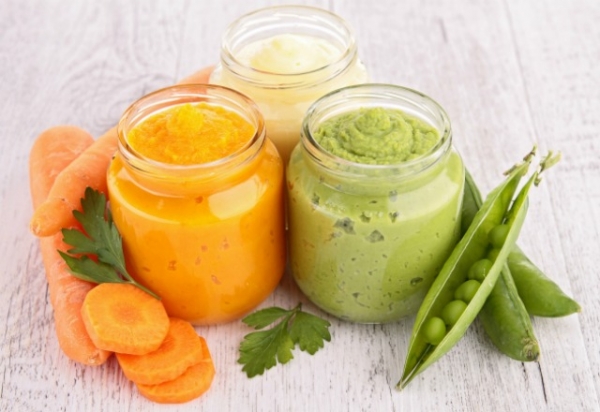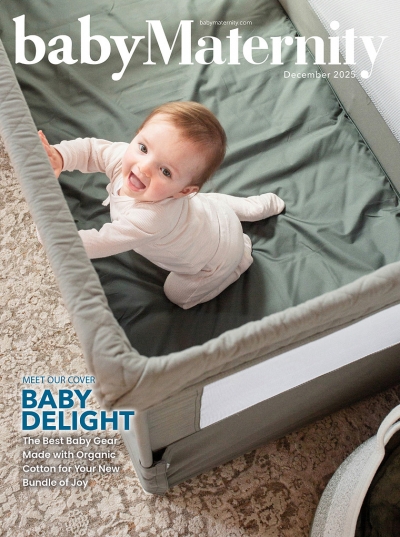10 Ideas for Homemade Baby Food

Pediatricians recommend introducing solid foods around 4 to 6 months old. In addition to breast milk or formula, your baby can begin to try his first foods with ease. Here are 10 ideas for homemade baby food recipes to get you started on this big milestone!
10. Blend one fruit or veggie:
One of the easiest and most cost-effective ways to make baby food is to try out single-fruit and single-vegetable purees. Even if you don’t have a blender, you can try foods that mash easily like avocados, pears, sweet potatoes, and bananas first.
9. Be informed.
There are a ton of resources and charts for introducing solid foods. Check out these ones from wholesomebabyfood.momtastic.com.
8. Get familiar with a few first time recipes ahead of time, and practice making them with a friend or family member. Here are some easy recipes from cookinglight.com!
7. Look for inspiration!
Get inspiration from commercial baby foods…then make your own! Maybe a combo of green beans, pears and peas would make your baby happy!
6. Avoid adding seasonings, salts, sugar and honey!
(After the 1-year mark, your baby’s digestive system is more mature and can handle the bacteria and risks associated with these additives).
5. Buy organic fruits and veggies as much as possible.
But don’t worry if you can’t always do it! If you puree baby’s food using the same ingredients that you cook the rest of the family meal with, you can save time and money in many cases. (Don’t forget to set aside baby’s portion before you add seasonings and spice).
4. Cook in Bulk
Try out some great baby food makers like the Baby Bullet by Magic Bullet or the Béaba BabyCook to make a week’s worth of food at one time.
3. Store the purees you make in bulk!
Freeze it in silicon pans or ice trays, transfer to labeled freezer bags, and then thaw when baby is ready to eat!
2. Food Safety
Always follow food safety guidelines for prepping and cooking, use recommended storage times and never refreeze thawed foods! For more on food safety visit www.foodsafety.gov.
1. Take your time!
Pay attention to how your baby responds to new solid foods. If she doesn’t like using a spoon, try introducing the new food with your finger first. Sometimes the sensation of a new taste added to the feel of a new utensil can be overwhelming for baby’s senses!
Remember, always consult with your pediatrician regarding introducing solid foods to your baby and specifically discuss the foods that may be an allergy risk.
Read more about homemade baby food recipes here!











